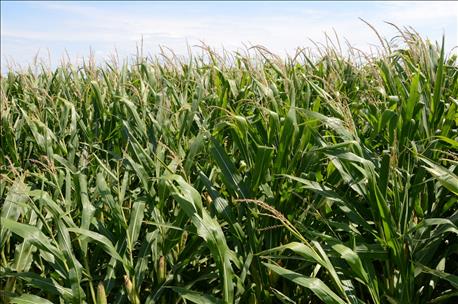
With all of the political rhetoric of the election from both Republicans and Democrats, it would appear candidates running for election on both sides of the aisle are opposed to passing the Trans Pacific Partnership. They say it is a bad deal for America and would costs thousands of manufacturing jobs.
GOP presidential nominee Donald Trump has attacked the TPP as bad for American workers. Democrat Hillary Clinton has come out against the agreement after supporting the plan when she worked in the Obama administration. Many on the left see the agreement as giving large corporations too much power at the expense of workers and the environment.

President Obama is calling on the Senate and the House to pass the TPP during the lame duck session after the election but before Congress adjourns in December.
But the American Farm Bureau Federation and the National Governor's Association believe opponents of the TPP are misguided. Agriculture, they say, would be a big loser if the TPP isn't passed by Congress this year.
According to the AFBF, the agreement would boost annual net farm income by $4.4 billion over levels expected if Congress fails to ratify the TPP.
Finalized last October after seven years of negotiations, the TPP involves 12 nations and covers 40% of the world’s economy: the U.S., Australia, Brunei, Canada, Chile, Japan, Malaysia, Mexico, New Zealand, Peru, Singapore and Vietnam. If passed, TPP would open new and lucrative markets for ag commodities. It would reduce tariffs on beef, pork, soybean oil and soybean meal. Corn and soybean growers would benefit from new feed demand created by the reduced meat tariffs.
And there are benefits for dairy. In 2015, the United States exported $2.8 billion of dairy products to the TPP region and $5.2 billion to the world. According to the USDA, without the TPP agreement U.S. dairy product exports to the TPP region face a competitive disadvantage. Australian dairy exports to Japan receive preferential market access treatment under the Japan-Australia Economic Partnership Agreement.
The trade pact would more closely link the economies of the U.S., Japan and Pacific Rim countries, reducing tariffs on thousands of products and setting rules for trade. Supporters say the agreement would increase exports and give the U.S. major influence over trade in Asia, and they warn that China will step in otherwise. But the TPP plan faces criticism from both the left and the right.
According to the AFBF, agriculture would be among the biggest winners in the deal. For dairy, beef, pork and poultry producers, along with corn and soybean farmers and the economy in general, the agreement would mean far more exports, rising incomes and jobs. But Congress has to approve the TPP as do governments of other participating countries for it to go into effect.
Virginia Gov. Terry McAuliffe says critics are unfairly blaming trade for the loss of U.S. manufacturing jobs in recent years. He says the reality is American companies can’t create more jobs without opening up additional markets for their products.
“The rhetoric in this presidential campaign is over the top," McAuliffe says. "Once we get through the election, more commonsense will prevail.”
President Barack Obama is one of the biggest supporters of the TPP. He is calling on the Senate and the House to pass the TPP during the "lame duck session" after the election but before Congress adjourns in December.
The next time you hear someone speak negatively about the TPP, don't be afraid to speak up and set the record straight. Send an email or letter to Sen. Tammy Baldwin and Sen. Ron Johnson and your U.S. Representative and let them know that you support the TPP and why. Ask them to pass the TPP this year. If you don't speak up for agriculture, who will?
About the Author(s)
You May Also Like






